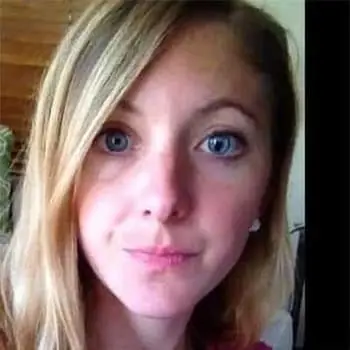There are many types of treatments and services available for addiction. Learning the options for Klonopin rehab can be the first step in seeking help for addiction.
Klonopin is the brand name of the drug clonazepam, a benzodiazepine used to treat seizures, anxiety disorders or insomnia. Klonopin is often abused for its sedative effect, and dependence can happen even after short-term or low-dose use.
Klonopin addiction treatment aims to address the physical dependence on the substance, but also the underlying beliefs or problems that led to substance abuse. Both aspects are important for a successful recovery.
The process of getting off Klonopin is the first step toward recovery. Understanding how treatment works, how to taper Klonopin and the treatment options available can reduce anxiety about seeking help.
Treatment Can Be Life Changing. Reach out today.

There are many types of treatments and services available for Klonopin addiction. Learning the options for Klonopin rehab can be the first step in seeking help for addiction.
The Need for Klonopin Rehab and Treatment
Klonopin is the brand name of the drug clonazepam, a benzodiazepine used to treat seizures, anxiety disorders or insomnia. Klonopin is often abused for its sedative effects, and dependence can happen even after short-term or low-dose use.
Klonopin addiction treatment aims to address the physical dependence on the substance. However, it also treats the underlying issues that led to substance abuse. Both aspects are important for a successful recovery.
Klonopin addiction can be difficult to overcome without support and professional treatment. Withdrawal from benzodiazepines, like Klonopin, can result in severe and even dangerous symptoms. These symptoms can make it challenging to avoid going back to the drug. Finding a Klonopin rehab program that provides medical detox and inpatient care can improve your chances of success. If you’re researching options for yourself or a loved one, our Recovery Advocates are here to help. They can connect you with the right resources for your situation.
The process of getting off Klonopin is the first step toward recovery. Understanding how treatment works and how to taper the drug can reduce anxiety about seeking help.
Klonopin Rehab and Treatment Options
There are several different treatment options for Klonopin addiction. Most substance abuse treatment facilities are suited to treat a range of substance use disorders. Treatment for Klonopin addiction can range from highly structured to more self-directed. Usually, the severity of the addiction will determine what treatment options are most suitable.
Medical Detox
Detox is when the Klonopin leaves the body. The detox process can be accompanied by unpleasant side effects. Medical detox ensures safety during the process with medical supervision. This can take place in a hospital or inpatient setting. Medical detox is recommended for people who have been using Klonopin for a long time or in extremely high doses.
Inpatient (Residential) Rehab
Klonopin rehab can also take place in an inpatient, or residential, rehab center. Inpatient rehab centers are live-in facilities with various treatments for those in recovery. Services may include medical detox and supervision, medication-assisted treatment and counseling.
Outpatient Rehab
Outpatient rehab might be an option for patients who are taking a lower dose of Klonopin or have been using it for a shorter amount of time. Outpatient rehab is less intensive than inpatient rehab. It allows people to get treatment while living at home. However, outpatient services should still be directed by a medical professional. Outpatient programs may include medication management and regular contact with a therapist.
Dual Diagnosis
A dual diagnosis of a Klonopin addiction alongside a mental health condition can make treatment more complex. If so, the treatment process might be modified to account for the second diagnosis. Treatment for a dual diagnosis requires close medical guidance and supervision. This ensures that withdrawal symptoms do not worsen the other condition. Mental health treatment should address both the Klonopin addiction and the underlying mental health condition.
Medication-Assisted Treatment (MAT)
Withdrawal from Klonopin can be complex and have unexpected effects on the body. Doctors and medical experts can supervise the process and provide medications to ease withdrawal symptoms. They can also help patients gradually reduce their Klonopin use. Medication-assisted treatment is a valuable benefit when seeking professional Klonopin treatment and rehab. Without medical help, the withdrawal experience can hinder the recovery process. It can even increase the risk of relapse.
What to Expect When You Go to Rehab for Klonopin
Many people might feel anxious about the rehab process. That anxiety can sometimes be a barrier to seeking treatment. Knowing what to expect can help with initiating recovery.
Detoxification from Klonopin
The first step in rehab is usually detox. Depending on the patient’s needs, this may be done in an inpatient or outpatient setting. The detox process is designed to keep patients comfortable and safe. In this way, it assists in coping with the potential for relapse during this crucial phase.
Rehabilitation and Recovery
Following detox, rehab will usually include a structured schedule of therapy and activities. These activities are designed to help people stay clean and build skills to stay sober beyond treatment. Depending on the type of treatment, medical supervision may be offered 24 hours a day or on an on-call basis.
Rehab is a safe and comfortable place to begin recovery. At The Recovery Village Palm Beach at Baptist Health Drug and Alcohol Rehab, we empower you with the tools and support you need to lead a Klonopin-free life.
In inpatient care, we provide:
- Full medical support.
- Individual and group therapy.
- A full nutrition plan
- 24/7 medical support
Aftercare and Sober Living
Recovery is an ongoing process that does not stop after formal treatment. After detox and rehab, aftercare may involve ongoing programs that support long-term sobriety. These programs are typically less strict and assist people in adapting to challenges they will likely face once leaving treatment.
We prepare for your aftercare at The Recovery Village in Palm Beach and Miami right from the start of your treatment. You’ll have a case manager working with our addiction specialists. They will create an aftercare plan tailored to your needs and aligned with your Klonopin addiction treatment.
How Long Does Klonopin Rehab Take?
There is no formal length for rehab. However, it is recommended that people stay in treatment for at least three months. The duration of a rehab program can depend on the severity of the addiction and any co-occurring mental health problems.
Usually, the detox process can take a couple of weeks or months, depending on the starting dose. Inpatient and outpatient rehab programs can vary from two weeks to many months. The length of a rehab program should be tailored to the client’s needs and discussed with a doctor.
Does Rehab Really Improve My Recovery?
Addiction to Klonopin includes physical dependence. Therefore, it requires a combination of medical care and therapy to promote recovery. Klonopin recovery can be encouraged through rehab programs that address physical dependence. Treating the underlying thoughts or behaviors related to substance abuse is also important.
Through detox, rehab can eliminate physical reliance on Klonopin. Additional rehab therapy can build new skills and coping strategies that help patients stay clean. Rehab can boost the chances of Klonopin recovery by dealing with the root causes of addiction.
What Happens After Rehab?
Following a formal rehab program, a patient may transition to an outpatient program or a sober living facility. Aftercare can include attending 12-step meetings, regular therapy appointments, or group therapy.
Rehab can be a lengthy process and shouldn’t stop after formal treatment. Ongoing therapy can be a resource for social support. It can also help a person learn skills and coping strategies to stay free from drugs as they return to their regular activities.
How Much Does Klonopin Rehab Cost?
The cost of Klonopin rehab varies by the type of treatment offered. Rehab costs will be higher if a program includes medical detox and high levels of medical supervision. Luxury rehab centers will likely also be more expensive. The cost can be much lower for basic rehab programs or combinations of inpatient and outpatient treatment.
Does Insurance Cover Rehab?
New healthcare rulings now make it necessary for insurance companies to offer the same payment terms for mental health and substance use disorders as they do for physical health conditions. This can make rehab more affordable for people seeking treatment.
The price and coverage of treatment depend on whether a person attends rehab with or without insurance. There are several programs that can help make treatment affordable.
- Government assistance programs: Substance abuse is a serious public health problem. For this reason, there is government support for some types of addiction treatment. For example, the Substance Abuse and Mental Health Services Administration (SAMHSA) offers grants to substance abuse treatment facilities around the country. These grants make treatment more affordable for members of the community. SAMHSA can also help provide information on no or low-cost treatment.
- Sliding fee programs: The price of treatment with a sliding fee program is determined by how much a person can pay based on their circumstances. For example, fees for someone unemployed or without savings will be lower than for someone with a job.
- Private pay programs: Private pay programs require upfront or direct payment for treatment. These patients may be able to cover the costs of treatment. Or they may not have access to insurance or publicly funded programs. These are often the most expensive treatment programs but may offer additional services.
Choosing a Rehab Center for Klonopin Abuse
There are important criteria to be considered when choosing a rehab program. These criteria can be influenced by personal circumstances and the severity of the Klonopin addiction. Factors that should be considered before selecting a rehab program include:
- Location
- Cost
- Provided treatment options
- Success rate
- Duration of treatment
- Staff-to-patient ratio
Since 2013, The Recovery Village Palm Beach at Baptist Health Drug and Alcohol Rehab has helped tens of thousands of people recover from addiction. This number includes people with Klonopin addiction. At our facilities in Palm Beach and Miami, we offer personalized treatment programs that rank in the top 3% of programs in the entire state of Florida. Our patients are less likely to return to rehab and more likely to remain engaged with their recovery.
If you’re looking for world-class treatment for Klonopin addiction, a Recovery Advocate would love to speak with you. Contact us today to find out about your options. It’s time to get your life back. We’re here to support you.











